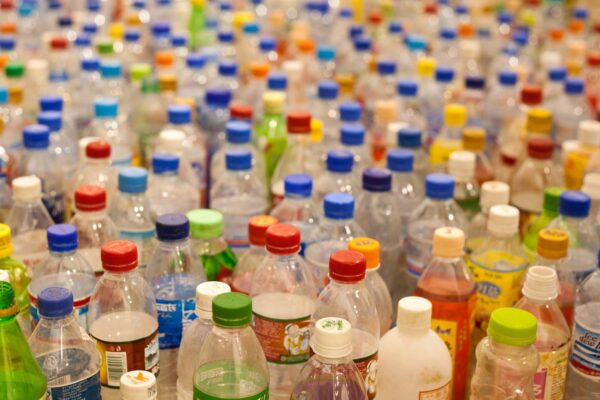Wellhealthorganic.com know why not to reuse plastic water bottles know its reason in Hindi: In the quest for convenient hydration solutions, the prevalence of single-use plastic bottles has surged, prompting concerns about potential health hazards associated with their reuse. Research suggests that containers commonly used for beverages may harbor trace amounts of Bisphenol A (BPA), a synthetic chemical with the potential to disrupt the body’s natural hormone signaling system.
Over a decade and a half ago, One Green Bottle emerged as a response to these concerns and the proliferation of disposable plastic bottles. Founded by an industrial chemist in Sussex, UK, the company focuses on offering a diverse range of reusable bottles crafted from the highest-grade stainless steel—material that is both inert and entirely safe for repeated and prolonged use.
With a commitment to sustainability, One Green Bottle has established an exemplary supply chain that eliminates plastic packaging, ensuring ethical and responsible manufacturing processes. Explore our award-winning water bottles, 100% certified free from harmful chemicals.
The Hazards of Reusing Plastic Bottles
Frequent use and washing of plastic bottles can lead to scratches and wear, elevating the risk of chemicals leaching from micro-fractures. A comprehensive review of 130 studies by the Environment California Research & Policy Center linked BPA exposure to breast and uterine cancer, an increased risk of miscarriage, and reduced testosterone levels. Concerns also extend to children, with potential negative impacts on their developing systems.
Also Read: Wellhealthorganic.com simple ways to improve digestive system in hindi
Experts caution against reusing bottles made from plastic #1 (PET/PETE), found in most disposable water, soda, and juice containers. Studies indicate that these bottles may leach DEHP, another potential human carcinogen, especially when structurally compromised.
Environmental Impact of Plastic Bottles
The global consumption of a staggering one million plastic bottles per minute, totaling 480 billion bottles in 2016, contributes significantly to landfill waste. Despite the recyclability of PET bottles, less than half were collected for recycling in 2016, with only 7% being transformed into new bottles. The production and incineration of plastic in 2019 were estimated to generate over 850 metric tons of greenhouse gases, toxic emissions, and pollutants, exacerbating global warming.
Toxic Concerns: Incineration and Leaching
Plastic #3 (PVC) and plastic #6 (PS) pose additional concerns. PVC can release hormone-disrupting chemicals into stored liquids and synthetic carcinogens when incinerated. Similarly, PS has been shown to leach styrene, a potential human carcinogen, into food and beverages.
Also Read : Well health tips in hindi wellhealth
Choosing Safer Alternatives
Wellhealthorganic.com know why not to reuse plastic water bottles know its reason in Hindi, Consumers have access to alternatives that prioritize both safety and sustainability. Opt for bottles made from HDPE (plastic #2), LDPE (plastic #4), or PP (plastic #5). Aluminum and stainless steel bottles, widely available online and in natural food markets, provide secure choices for reuse and eventual recycling.
Explore our customer-recommended selection of safe, reusable water bottles as superior alternatives to single-use plastic bottles. Choose wisely for your health and the environment.
FAQs About Wellhealthorganic.com know why not to reuse plastic water bottles know its reason in Hindi
1. Why is reusing plastic water bottles considered risky?
Answer: Reusing plastic water bottles, especially those made from materials like PET (#1), can lead to scratches and wear during regular washing. These micro-fractures may increase the risk of harmful chemicals, such as Bisphenol A (BPA) and DEHP, leaching into the contents of the bottle, posing potential health hazards.
2. Are there specific types of plastic to avoid when reusing bottles?
Answer: Yes, health advocates advise against reusing bottles made from plastic #1 (PET/PETE), commonly found in disposable water, soda, and juice bottles. Studies suggest that such bottles may leach DEHP, a potential human carcinogen, especially when the structural integrity is compromised.
3. What is the environmental impact of plastic bottle consumption?
Answer: The global consumption of one million plastic bottles per minute contributes significantly to landfill waste. Despite the recyclability of PET bottles, a substantial percentage ends up in landfills, leading to environmental concerns. The production and incineration of plastic also contribute to greenhouse gas emissions and pollutants, exacerbating global warming.
4. Can children be negatively affected by the reuse of plastic bottles?
Answer: Yes, children’s developing systems can be negatively impacted by the potential leaching of chemicals like BPA from reused plastic bottles. Parents are advised to be cautious, as some baby bottles and sippy cups are made from plastics containing BPA.
5. What are safer alternatives to plastic water bottles for reuse?
Answer: Safer alternatives for reusable water bottles include materials like HDPE (#2), LDPE (#4), and PP (#5). Additionally, aluminum and stainless steel bottles are considered secure choices. These materials not only prioritize user safety but also contribute to environmental sustainability. Explore our customer-recommended selection of safe, reusable water bottles for superior alternatives to single-use plastic bottles.




